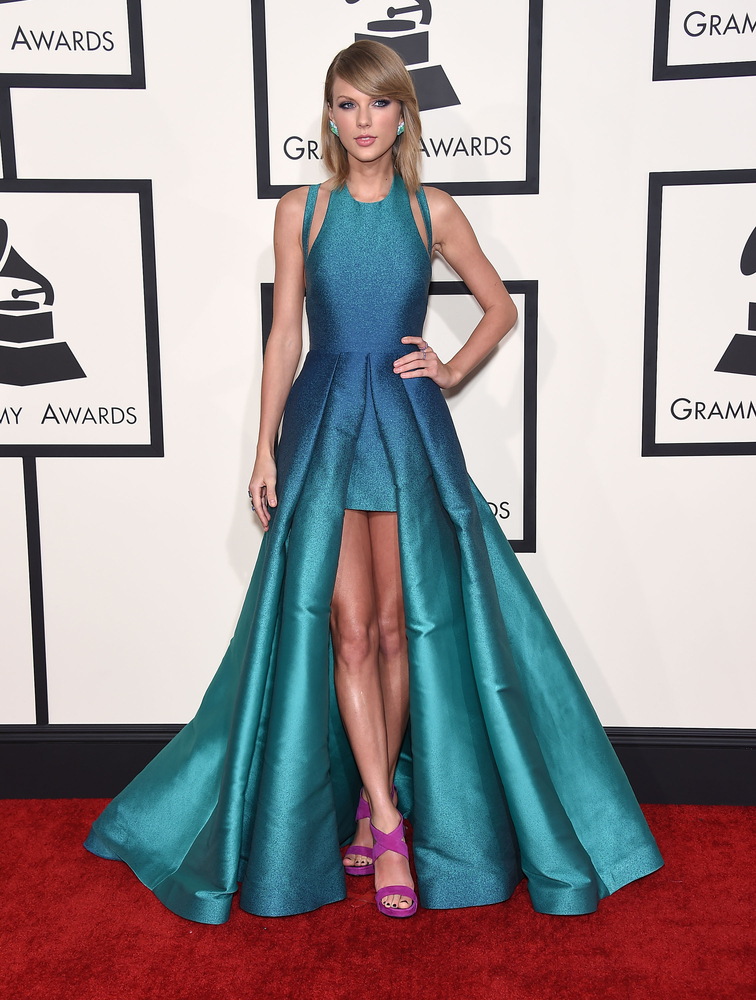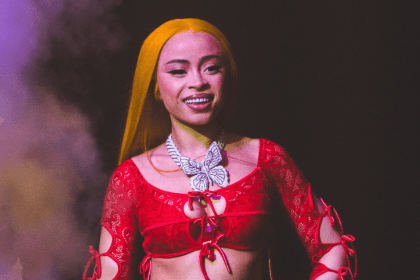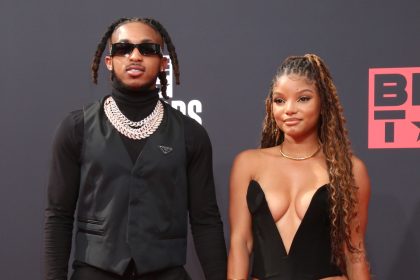Billboard has issued a formal apology to Taylor Swift after sparking outrage among her fans for including unauthorized footage of a nude wax figure of the singer in a video celebrating her achievements. The video, part of Billboard’s series highlighting top pop stars of the 21st century, was intended to honor Swift for securing the No. 2 spot. However, the inclusion of the controversial clip led to significant backlash, prompting Billboard to swiftly retract the content and issue a public apology.
The controversial clip and Swift’s feud with Ye
The controversy stemmed from Billboard’s announcement of Swift’s ranking, which was accompanied by a video posted on their Instagram. In the video, a brief segment from rapper Ye’s 2016 music video for his song “Famous” was shown. The video features wax figures of several celebrities, including Swift, depicted in the nude. The clip is infamous for its controversial portrayal of Swift and its ties to her public feud with Ye and his then-wife, Kim Kardashian.
This portrayal of Swift, as part of the music video, has been a source of tension since its release. Swift has publicly condemned the video in the past, calling it “revenge porn” in a Tumblr post from 2019, criticizing Ye for the disrespectful and invasive way he chose to depict her. The recent reappearance of the footage, in a video meant to celebrate her achievements, reignited old wounds and fueled the anger of Swift’s loyal fanbase.
Billboard’s apology
In response to the public outcry, Billboard issued an apology, acknowledging their mistake. The statement read, “We are deeply sorry to Taylor Swift and all of our readers and viewers that in a video celebrating Swift’s achievements, we included a clip that falsely depicted her. We have removed the clip from our video and sincerely regret the harm we caused with this error.” The statement was shared across Billboard’s social media platforms, expressing their regret for including the clip without the singer’s consent.
Swift’s fans and the #BillboardIsOverParty
Swift’s fans, known as Swifties, were quick to express their outrage over the unauthorized use of the clip, taking to social media to voice their anger. The controversy reached new heights when fans launched a campaign demanding an apology from Billboard. The hashtag #BillboardIsOverParty quickly began trending on X (formerly Twitter), further amplifying the public outcry.
Many fans felt that Billboard had disrespected Swift, not only by including the unauthorized footage but also by downplaying the significance of the recognition. The video, which was meant to honor Swift’s position as one of the greatest pop stars of the 21st century, instead became a source of controversy. Fans felt that the inclusion of the “Famous” video clip diminished the honor of being ranked No. 2 and overshadowed the positive celebration of Swift’s career.
Broader implications and fan criticism
This incident highlights broader issues surrounding the representation of female artists in the media and the importance of consent in how celebrities are portrayed. Swift’s fans have long been vocal about the double standards female celebrities often face, and the controversy surrounding the “Famous” video is a reminder of how damaging and objectifying media portrayals can be.
The incident also brought attention to the ongoing dialogue about the respect and dignity of women in the entertainment industry. Fans and critics alike pointed out that the video, despite its apparent intention to celebrate Swift, undermined the very honor it was meant to acknowledge. The inclusion of the controversial clip, instead of focusing on Swift’s accomplishments, led to questions about the media’s treatment of female artists.
Swift’s influence and the power of her fanbase
Swift’s immense influence in the music industry cannot be overstated. With countless chart-topping albums, sold-out tours, and a cultural impact that stretches beyond music, Swift has become one of the most influential pop stars of the 21st century. The passionate response from her fans to this incident further demonstrates the power of her fanbase and the importance of respect in celebrity-media interactions.
Swift has long been an advocate for controlling her narrative, whether it’s through reclaiming her music or defending her image against unwanted portrayals. This incident serves as another example of her efforts to maintain control over her public persona and to fight back against what she sees as unjust representations of her.
Billboard’s reaction and future considerations
In light of the backlash, Billboard has taken steps to remove the offending video and issued an apology. However, the controversy raises questions about how media outlets handle sensitive content, especially when it comes to women in the entertainment industry. As the industry evolves, it will be crucial for media platforms to consider the potential consequences of their portrayals and ensure that artists are treated with the respect they deserve.
The incident also serves as a reminder of the growing influence of fans on social media. Swifties’ swift response to the controversy underscores the power of fan-driven movements in holding media outlets accountable for their actions.
Looking ahead: The no. 1 pop star of the 21st century
Despite the controversy, Billboard’s ongoing series celebrating the top pop stars of the 21st century continues. On December 3, 2024, Billboard is set to announce its No. 1 pick for the greatest pop star of the 21st century. As Swift’s fans continue to advocate for her, the next installment of the series will likely come under even more scrutiny, as fans eagerly await the next installment in this highly publicized ranking.
Conclusion: A moment for reflection
The Billboard apology marks a significant moment in the ongoing conversation about how female artists are portrayed in the media. The incident is a stark reminder that media representations, especially those involving female celebrities, must be handled with care and respect. As the entertainment industry continues to evolve, it is vital that artists’ voices are heard and that their narratives are shaped by their own terms, not by others.
As Swift continues to navigate her career and personal life in the public eye, her story is not just about her music but also about her unwavering determination to fight for dignity, respect, and control over her own narrative.












